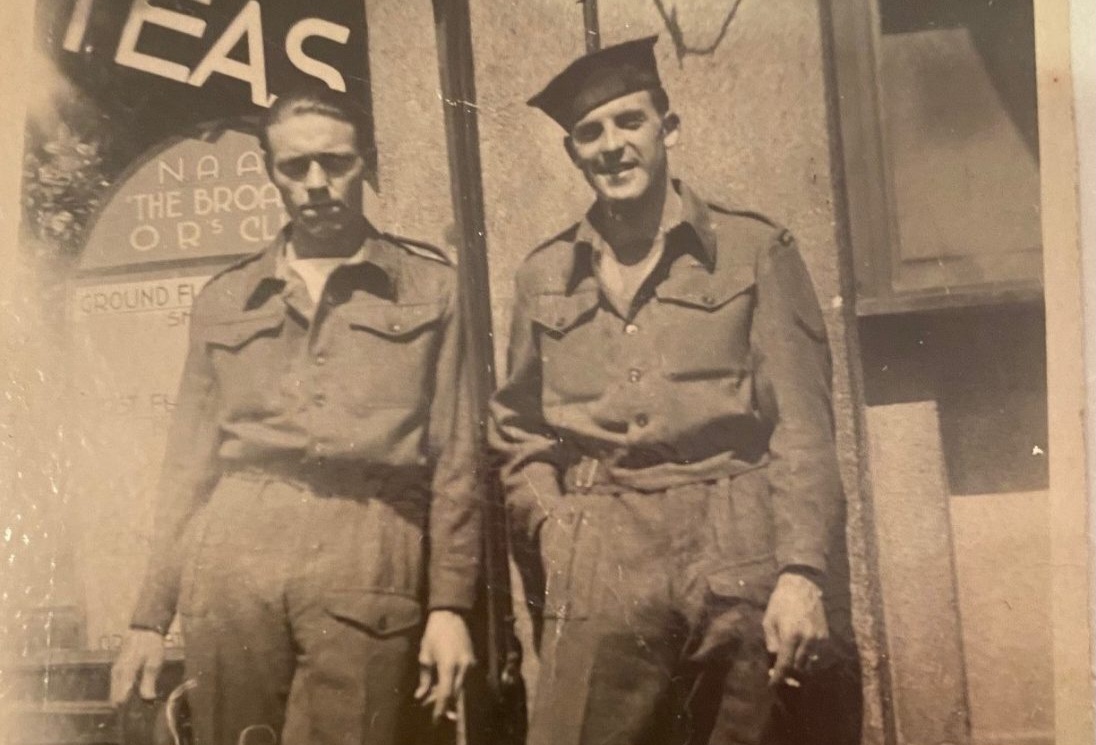Leonard Gunner, a Royal Naval Association member from Walton-on-Thames, recounts how, just two days after his 19th birthday, he directed fire to protect the troops landing on Gold Beach.
Leonard ended up in a shell-scrape on Gold Beach because he was so seasick when on the water that he was sent to become a wireless operator for the precise purpose of landing him on the beaches.
Leonard said: “The first time I went to sea I was seasick, and you can’t be a good radio operator with a bucket between your legs! I didn’t find my sea legs though. That’s why I joined Combined Ops and ended up on the beach.
“We went over on the Empire Crossbow. I was on the Naval Landing Party 1533. There were about eight of us wireless operators placed along the beach. We were told to dig a hole and stay low. We had Marines with us, who were there to protect us, and I had my Webley pistol if I got into trouble.
“For security we only had a call-sign and frequency for the ship we were directing, we didn’t know exactly which one we were communicating with, but I think mine was the Black Prince. Messengers from the Army ran back to let us know where the fire was needed, and we communicated this back to the ships so that they did not fire on our own troops.”
Leonard remembers someone shouting “Watch out, here come the Luftwaffe” but there were only two of them. They strafed the beach but didn’t do too much damage. He almost felt sorry for them because the RAF was in control of the skies.
“All I can remember is how noisy it was. I was 19 and full of gung-ho. I was apprehensive, but at the time I didn’t think of the danger, it was just an adventure. Well, not until the Messerschmitts flew overhead.”
After the initial landing, on the afternoon of the 6th June, Leonard moved to give signalling support for the building of the Mulberry harbour. This structure was built under secrecy in the United Kingdom. Within hours of the Allies taking the beachheads, the concrete sections were towed to Normandy and placed in position off Omaha and Gold Beach.
After this, he went up to Antwerp with the Canadians to establish a radio station to enable reporting back to the Allied Naval Command in Paris.
When he was conscripted at 18 years old, Leonard felt that it would be an adventure. He remembers being excited about helping because the German’s were bombing London. He had been in the Home Guard and was learning to be an engineer. On being called up, he was allocated to be in the Navy and spent 26 weeks learning how to operate the radios and becoming fluent in Morse code. They trained in Douglas in the Isle of Man and Ayre in Scotland.
Leonard said: “We had to be fast with Morse code, we had to do 150 words a minute, so you were practicing constantly. We also had to have a pocket full of sharpened pencils in case they broke whilst you were writing down the messages.
“I went aboard an American ship once, and each operator had a typewriter in front of him and headphones on. The messages came through in words – it was so far in advance of what we had. I was quite jealous.”
Leonard was one of 24,000 British, American and Canadian troops men who took part in the D-Day landings on the 6th June 1944. He asks that readers remember those men who did not return.

